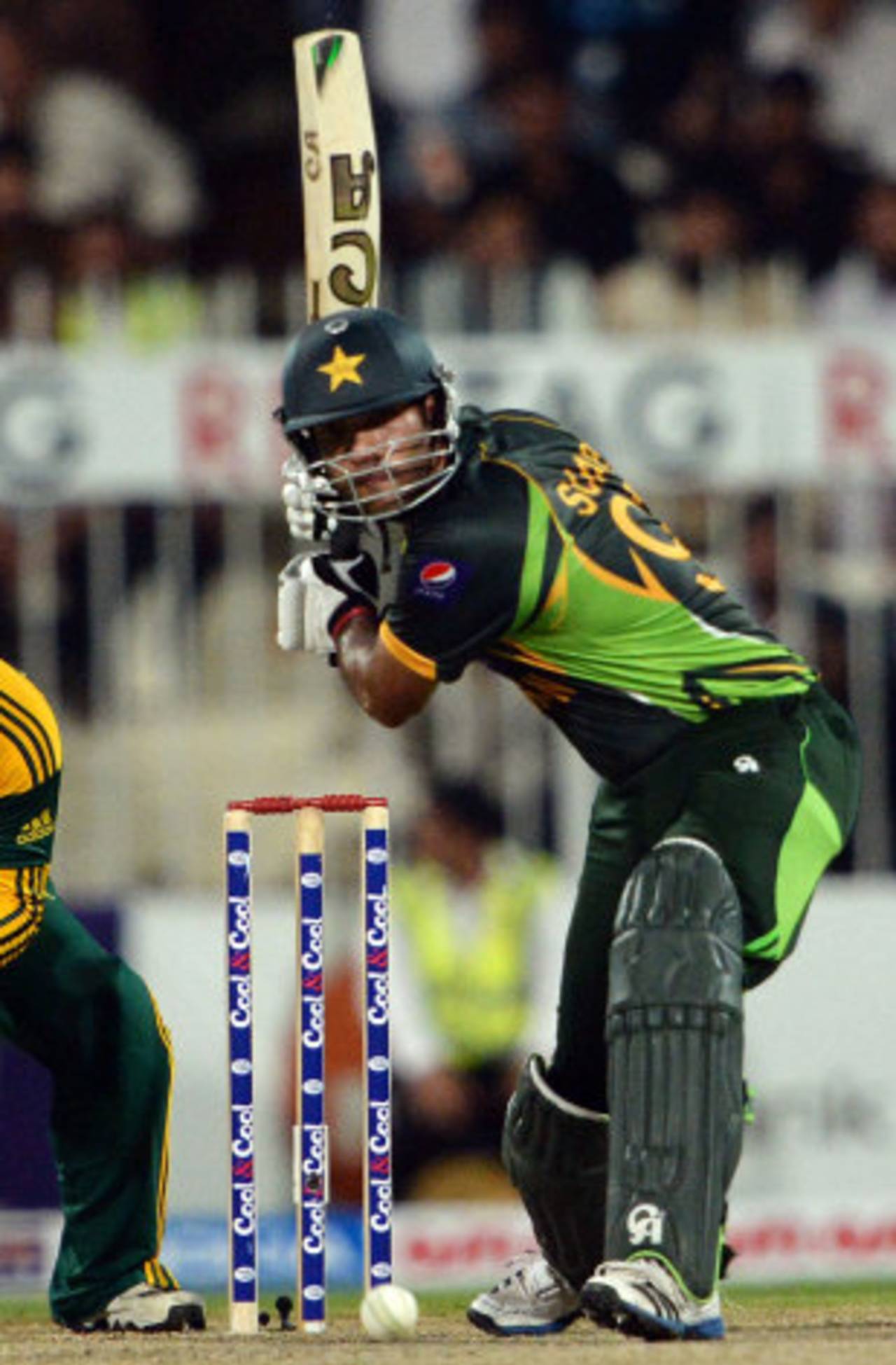Multan is famous for many things - shrines, Sufi saints, renowned political figures and mangoes. In cricket, the city produced Inzamam-ul-Haq, perhaps Pakistan's best batsman, but no one else in the six years since he retired. Until now.
Sohaib Maqsood, Pakistan's newest international cricketer, was born in Multan in 1987, and he kick-started his career with half-centuries in his first two ODIs, against South Africa.
Maqsood, 26, began playing first-class cricket in 2003-04 but had problems with his back for most of the next three years, during which he didn't play a game. He also had an ankle-ligament injury that threatened his career in 2010, and underwent surgery for an ingrown toenail that had been a hindrance for much of his domestic career.
He returned in the 2007-08 season to score 537 runs at an average of 53.70 but was inconsistent over the next two years. In 2010-11, however, Maqsood made 951 runs at an average of 50 and in the following season he scored 1020 at 44.34. He was the leading runscorer in domestic one-day cricket in 2012-13, with 944 runs at an average of 78.66.
Maqsood's consistent run in domestic cricket resulted in a call-up to Pakistan's Twenty20 squad for the matches in Zimbabwe this year, and subsequently for the ODIs against South Africa in the UAE. He recovered from more back trouble in time to make the trip to Harare, where he made 26 in his only T20 innings, but began his ODI career with 56 and 53 against South Africa.
"He has been terribly unlucky throughout his domestic career," Amjad Saddiq, who coached Maqsood when he played for Water and Power Development Authority, told ESPNcricinfo. "Injuries have been the main factor. Otherwise, with such talent, he could have played for Pakistan at least in his early 20s, but better late than never. Whatever the case, he is out there playing international cricket.
"He (Maqsood) used to be very chubby like Inzamam, and we called him dusra (second) Inzi. He is a rare batsman in our domestic cricket at present, one who is good against any bowling. His mental strength is the key, otherwise his brittle body could have ended his career way before. There are many things that resemble Inzi's elegance, but it will be unfair to put undue pressure by comparing him with a former great."
Maqsood bowled offspin and could have been an allrounder who bats in the lower-middle order. However, his back injuries curtailed his bowling and so he developed into a specialist top-order batsman. And though he's known to be reticent in the dressing room, his batting is extremely expressive. Maqsood's strength is his off-side play and his back-foot punch is a treat to watch.
As is usually the case in Pakistan, Maqsood had to balance cricket and education during his childhood. His father, a retired teacher, was keen for his son to nurture his cricket skills and Maqsood's mentor in college, Professor Javed Malik, was instrumental in his development ahead of his selection for the under-19 regional team.
Maqsood went on to represent Pakistan U-19 in two unofficial Tests against Sri Lanka U-19 in 2005, and was part of the probables for the 2006 U-19 World cup before his back problems flared up again. He was sidelined for two years, during which he graduated. Later on he completed a masters degree in sports sciences.
"His education made him a prominent cricketer around us," Saddiq said. "He pick things very quickly and absorbs pressure very well, and this is exactly what Pakistan need at the moment in their batting line up. I never doubted Sohaib in the time we have recruited him in WAPDA and knew the guy has the ability to go far if he remains fit."
Umar Farooq is ESPNcricinfo's Pakistan correspondent. He tweets here
